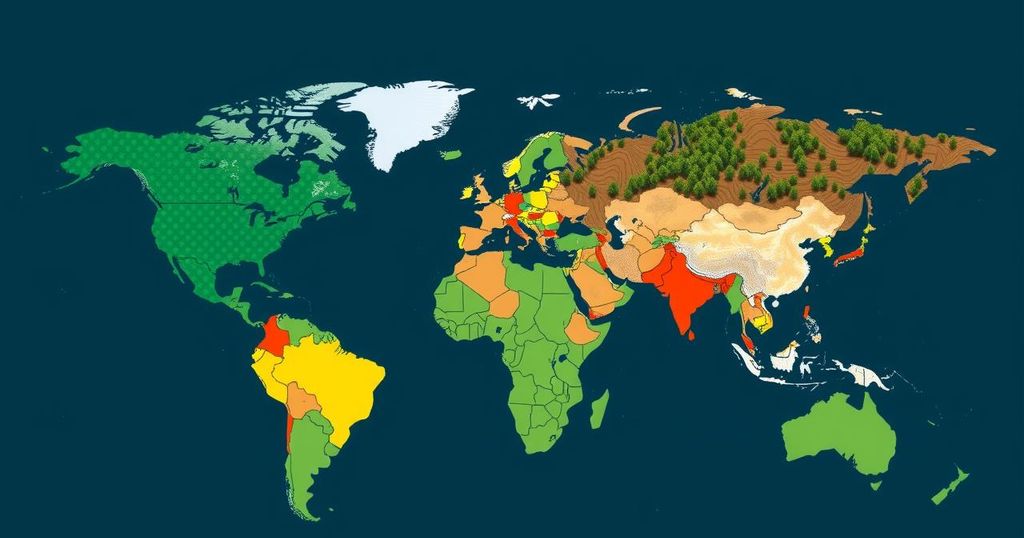Richer countries are beginning to compensate poorer nations for climate change damages through a new “loss and damage” funding mechanism. Following Cyclone Freddy in 2023, affected individuals like Christopher Bingala received payments enabling them to rebuild their lives. While approximately $720 million has been pledged, experts warn that this amount is insufficient amid escalating climate disasters. International negotiations are ongoing to determine financial responsibilities and guidelines for fund distribution.
In 2023, Cyclone Freddy wreaked havoc in southern Malawi, displacing thousands, including Christopher Bingala, whose home was destroyed. As a subsistence farmer, he struggled to rebuild until he received a crucial payment of $750 as part of a new initiative addressing climate-related damages. This payment exemplifies the emerging concept of “loss and damage” compensation, which aims to support low-income nations disproportionately affected by climate change despite their minimal contribution to global emissions. Currently, wealthier countries have pledged around $720 million, although experts warn that this amount is insufficient to mitigate escalating climate disasters.
Negotiations at the COP29 climate summit in Baku are focused on addressing financial obligations from developed nations to those affected by climate change. Prime Minister Philip Davis from the Commonwealth of the Bahamas emphasized the necessity for wealthier nations to acknowledge their responsibilities related to emissions causing significant challenges for poorer countries.
Cyclone Freddy had extensive consequences, displacing about 650,000 people in Malawi alone, as the country received an unprecedented amount of rain. Bingala, who initially faced dire food shortages after his displacement, was able to relocate and build a new home after receiving financial assistance. The payments are managed by organizations such as GiveDirectly, aimed at providing cash directly to those most in need without restrictions.
This pilot program in Malawi represents an initial step toward establishing a comprehensive funding system to assist low-income nations, which have contributed little to greenhouse gas emissions. Experts note that climate disasters are financially taxing for these countries, many of which are already burdened with debt. The urgency for an effective funding system is underscored by projections of skyrocketing funding needs in the coming years, with estimates suggesting that losses could reach $250 billion annually by 2030. Prime Minister Davis cautioned that failure to act would not only affect those in vulnerable regions but would also lead to broader humanitarian repercussions as climate refugees proliferate.
The topic of climate change finance, particularly the “loss and damage” compensation mechanism, has gained prominence as developing nations increasingly suffer from extreme weather events, which they primarily did not cause. In recent years, discussions at international climate summits have centered on allocating funding to support these nations in coping with the impacts of climate change. South Asian nations, such as Malawi, have become emblematic of this urgency, as they often lack the economic resilience and resources necessary to recover from disasters significantly worsened by global warming. Consequently, wealthier nations, historically responsible for the bulk of global emissions, are now being urged to acknowledge their role and contribute meaningfully to climate adaptation and recovery efforts.
In summary, the emergence of the “loss and damage” compensation initiative represents a significant step towards addressing the climate crisis’s adverse effects on low-income nations. The experience of individuals like Christopher Bingala highlights both the struggles faced in the wake of climate disasters and the critical role of financial assistance in fostering recovery and resilience. As negotiations continue at climate summits, the commitment from wealthier nations will be vital in ensuring that affected countries receive the necessary support to mitigate the consequences of climate change unequivocally.
Original Source: www.mainepublic.org






